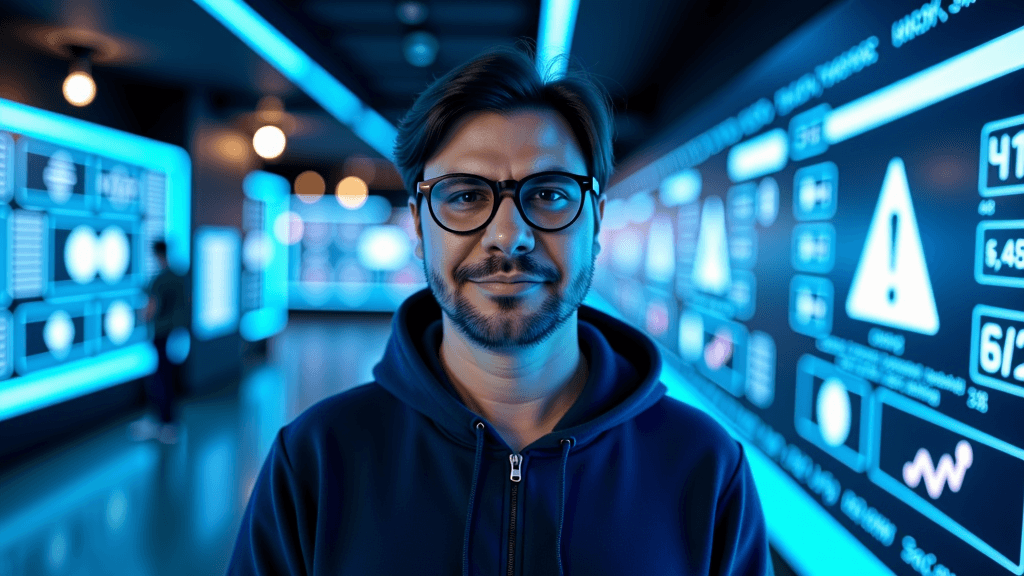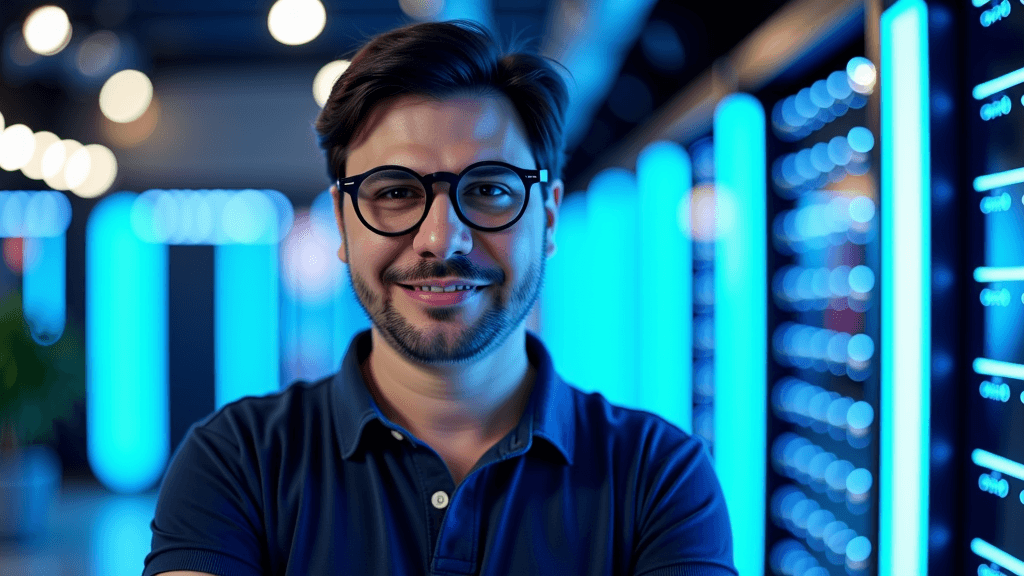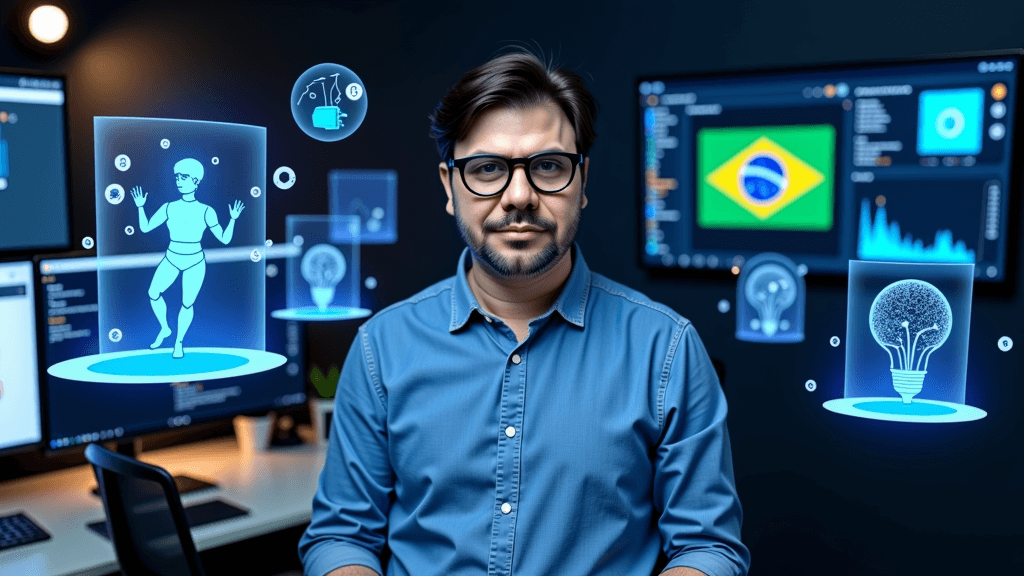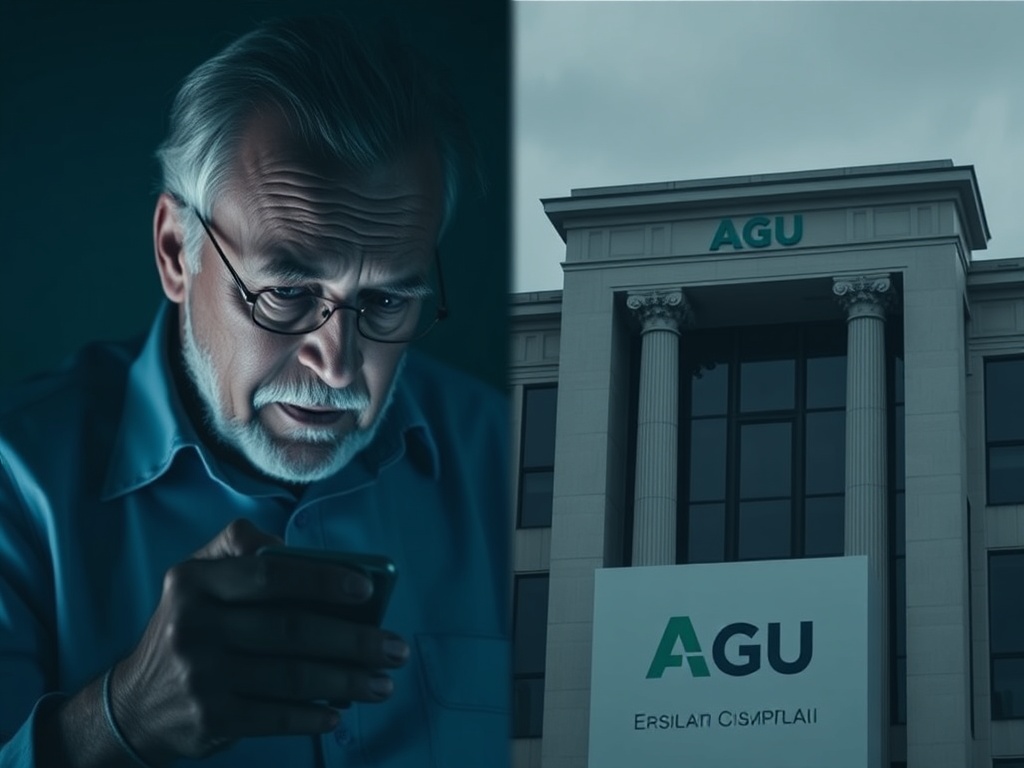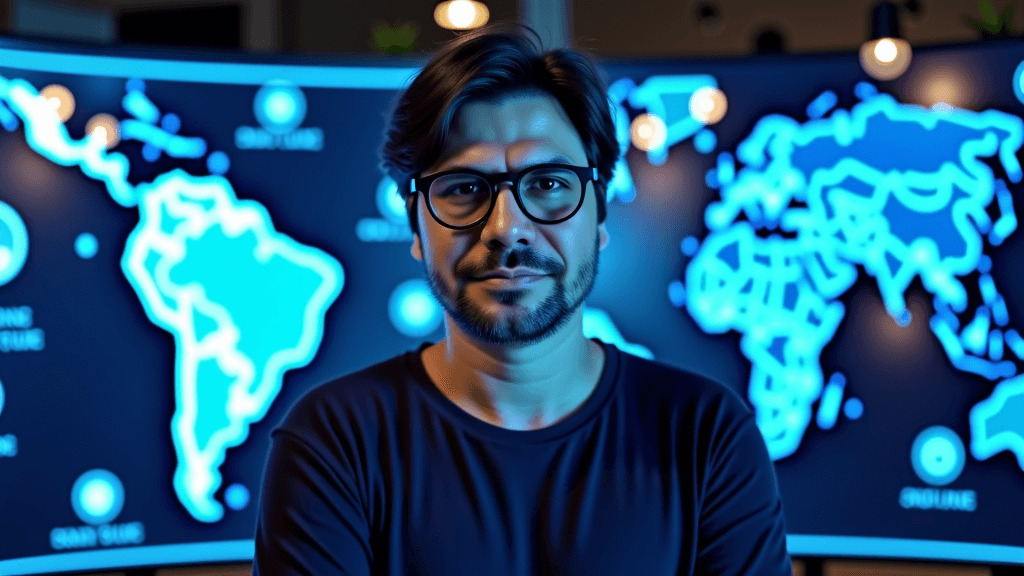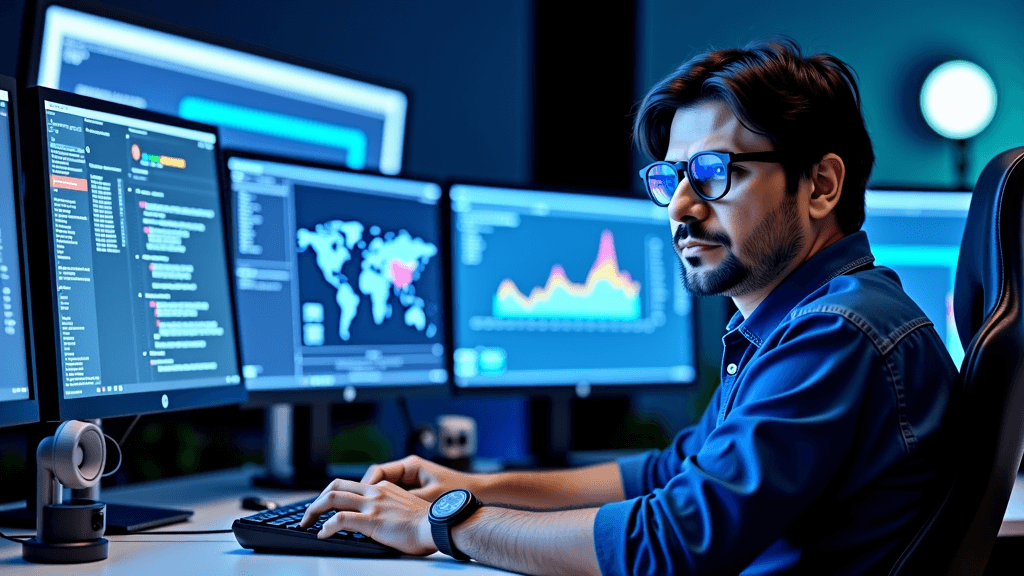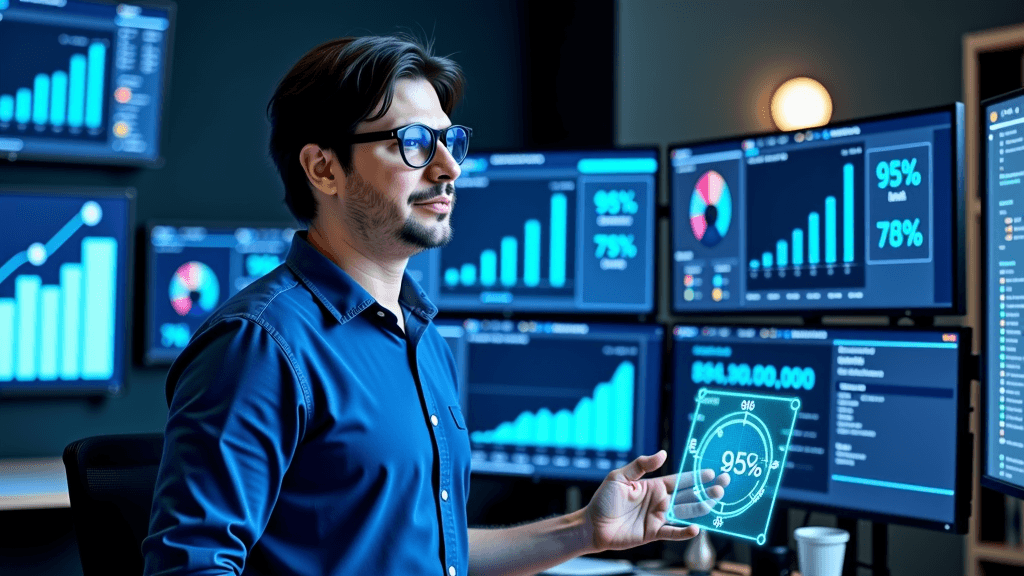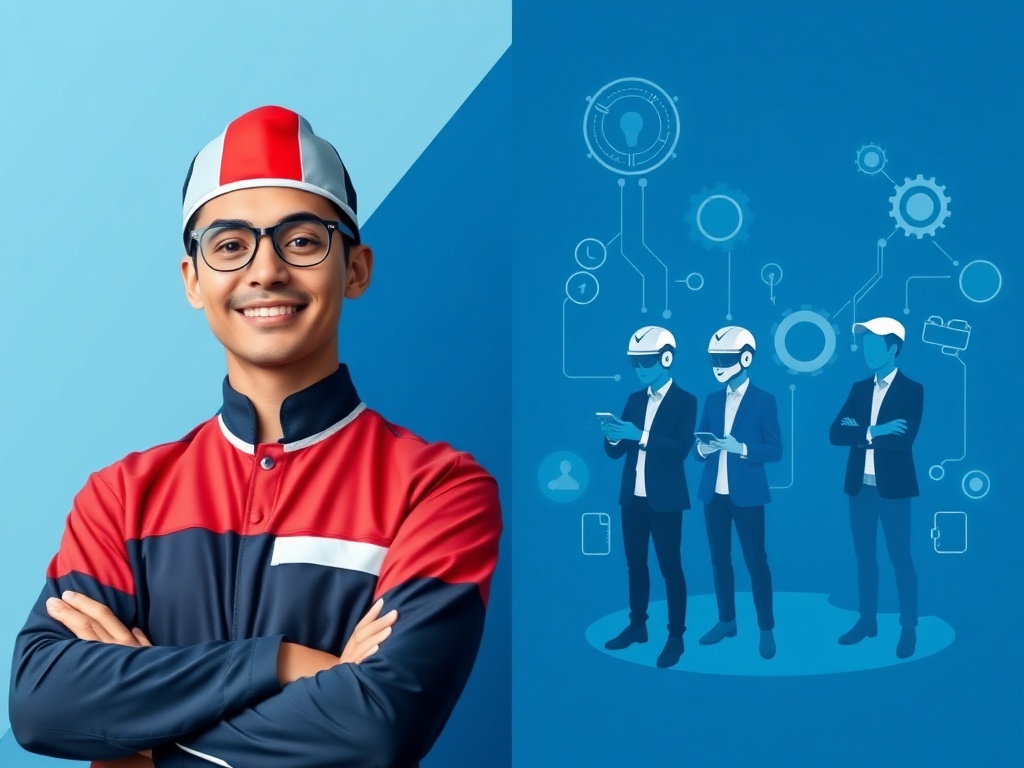All blog posts
Insights on startups, AI, innovation, the future of work and technology education. Practical strategies for impact businesses and digital transformation.
Enquanto celebramos os avanços espetaculares da inteligência artificial, uma realidade perturbadora emerge das últimas 24 horas: o chefe de IA da Microsoft está alertando sobre “psicose de IA” ao mesmo tempo em que o MIT revela que 95% dos projetos corporativos de IA fracassam. Essa aparente contradição revela muito mais do que problemas técnicos — ela expõe nossa relação complexa e muitas vezes disfuncional com a tecnologia mais transformadora de nossas vidas.
O Alerta Vermelho: Quando a IA se Torna uma Obsessão Perigosa
Mustafa Suleyman, cofundador da DeepMind e atual chefe de IA da Microsoft, não está exagerando quando usa o termo “psicose de IA”. Segundo relatórios da BBC, estamos vendo um fenômeno crescente onde pessoas desenvolvem relacionamentos distorcidos e irracionais com chatbots como ChatGPT, Claude e Grok.
Os relatos são impressionantes: usuários que acreditam que a IA possui consciência, outros que desenvolvem vínculos românticos com algoritmos, e casos extremos como o de Hugh, na Escócia, que a partir da interação com o ChatGPT desenvolveu um quadro mental grave. Não estamos falando de ficção científica — isso está acontecendo agora, em escala crescente.
Como alguém que trabalha há mais de 25 anos no ecossistema de tecnologia e inovação, já vi várias ondas de transformação digital. Mas nunca presenciei uma tecnologia que gere tanto fascínio quanto confusão sobre sua própria natureza. A IA generativa é tão convincente que nossa mente humana, evolutivamente programada para reconhecer padrões sociais, começa a atribuir características humanas onde elas simplesmente não existem.
Quando a Ilusão se Torna Realidade
O mais preocupante é que, segundo dados do Tecnoblog, temos relatos de mulheres que acreditavam ser amadas pelo ChatGPT e outras que afirmavam ter despertado uma personalidade humana no Grok. Esses não são casos isolados de pessoas com predisposições psicológicas específicas — são manifestações de um fenômeno muito mais amplo.
A questão fundamental é que as empresas de IA, mesmo sem intenção maliciosa, estão criando sistemas que “parecem conscientes”, como destaca Suleyman. E aqui mora um dilema ético profundo: até que ponto é responsável desenvolver tecnologias tão convincentes sem alertar claramente sobre suas limitações?
O Paradoxo Corporativo: 95% de Fracasso em Meio ao Boom da IA
Enquanto pessoas desenvolvem relações obsessivas com a IA, o mundo corporativo enfrenta uma realidade brutalmente diferente. Segundo pesquisa do MIT, impressionantes 95% dos projetos corporativos de IA generativa não geram ganhos significativos em receita ou eficiência.
Esse dado é particularmente revelador quando comparado com informações do Valor Econômico que mostram que apenas 13% das empresas brasileiras usam IA, e quando usam, é majoritariamente para tarefas administrativas básicas. Estamos diante de um cenário onde a adoção é tanto superficial quanto problemática.
Na minha experiência apoiando o desenvolvimento de mais de 10 mil startups, raramente vi uma desconexão tão grande entre o hype de uma tecnologia e sua implementação prática eficaz. É como se estivéssemos tentando usar um foguete espacial para ir ao mercado da esquina — tecnicamente possível, mas completamente inadequado.
Por Que os Projetos Corporativos Fracassam?
O relatório do MIT identifica problemas cruciais:
- Integração deficiente: A IA não se adapta aos processos específicos das empresas
- Investimentos mal direcionados: Muito foco em vendas e marketing, pouco em automação administrativa
- Falta de estratégia integrada: Projetos isolados sem visão sistêmica
- Gestores de linha ausentes: Decisões técnicas sem envolvimento operacional
Esse cenário me lembra dos primeiros dias da internet, quando empresas criavam sites porque “era preciso ter presença digital”, sem entender realmente como a web poderia transformar seus negócios. Hoje, estamos repetindo o mesmo erro com IA.
A Crise Ética: Quando a Integridade Profissional Entra em Questão
Se os dilemas psicológicos e a ineficiência corporativa não fossem suficientes, agora enfrentamos uma crise de integridade profissional. Segundo pesquisa da KPMG, 51% dos profissionais brasileiros admitem apresentar conteúdo gerado por IA como se fosse próprio.
Isso não é apenas uma questão técnica — é um problema de caráter profissional que pode minar a confiança em setores inteiros. Como podemos construir um futuro tecnológico sólido se baseamos nossa adoção em práticas enganosas?
A mesma pesquisa revela que 86% dos profissionais brasileiros usam IA no trabalho, com 71% relatando ganhos em eficiência. Mas esses números positivos são ofuscados pelos 49% que apontam erros por confiança cega na tecnologia e os 44% que reconhecem uso inadequado.
O Alarmante Avanço da IA em Áreas Sensíveis
A situação fica ainda mais complexa quando vemos estados americanos como Illinois, Nevada e Utah proibindo o uso da IA na prática direta de terapias psicológicas. Isso acontece exatamente no momento em que observamos um uso crescente de IA por jovens para questões existenciais profundas.
A ironia é palpável: enquanto alguns desenvolvem “psicose de IA” por excesso de confiança na tecnologia, os reguladores precisam intervir para impedir que ela seja usada em contextos onde a empatia humana é fundamental.
Transparência Perdida: O Caso Google e a Questão Ambiental
Como se os dilemas éticos e psicológicos não fossem suficientes, agora enfrentamos também questões de transparência corporativa. O Google divulga que o Gemini consome apenas 0,26 ml de água por consulta, mas estudos independentes sugerem que o consumo real é cerca de 200 vezes maior quando considerados sistemas indiretos.
Essa discrepância não é apenas um erro de cálculo — ela revela como a narrativa corporativa sobre IA pode ser manipulada para parecer mais sustentável do que realmente é. Em uma era de crise climática e escassez hídrica, essa falta de transparência é especialmente problemática.
Sinais de Esperança: Inovação Responsável em Ação
Apesar de todos esses desafios, também vemos exemplos inspiradores de como a IA pode ser usada de forma responsável e impactante. Julia Somerdin, fundadora da agtech Labby, está usando IA para detectar mastite em vacas leiteiras antes dos sintomas físicos, potencialmente evitando perdas globais de US$ 32 bilhões.
Esse tipo de aplicação — focada em resolver problemas reais, com impacto mensurável e benefício social claro — representa o que a IA pode ser quando implementada com propósito e responsabilidade.
Da mesma forma, vemos avanços interessantes como o Pixel 10 do Google, que permite editar fotos através de comandos de voz, democratizando ferramentas antes restritas a especialistas. O interessante é que o Google implementou credenciais de conteúdo C2PA, garantindo transparência sobre a origem e modificações das imagens.
O Caminho para uma Adoção Responsável
Então, como navegamos por esse cenário complexo? Baseado em minha experiência trabalhando com milhares de startups e empresas ao longo de duas décadas, vejo alguns caminhos essenciais:
1. Educação antes da Implementação
Antes de implementar qualquer solução de IA, organizações precisam investir massivamente em educação. Isso significa não apenas treinamento técnico, mas compreensão profunda das limitações, riscos e implicações éticas da tecnologia.
2. Transparência Radical
Empresas precisam ser radicalmente transparentes sobre como usam IA, incluindo seus impactos ambientais reais, limitações técnicas e potenciais vieses. A opacidade atual está minando a confiança pública na tecnologia.
3. Foco em Problemas Reais
Em vez de implementar IA “porque todo mundo está fazendo”, organizações precisam identificar problemas específicos e mensuráveis que a tecnologia pode resolver. O exemplo da Labby é perfeito: um problema claro (mastite), uma solução específica (detecção precoce) e um impacto mensurável (redução de perdas).
4. Governança Proativa
Como mostra a pesquisa da KPMG, 67% das empresas oferecem treinamentos e 68% têm políticas de uso, mas 30% ainda não possuem governança estruturada. Isso precisa ser invertido: governança primeiro, implementação depois.
Lições de Uma Jornada de 25 Anos em Tecnologia
Vivenciei várias ondas de transformação tecnológica — desde os primeiros dias da internet até a explosão das startups e agora a revolução da IA. Cada uma dessas ondas trouxe promessas grandiosas e problemas inesperados. A diferença é que a IA tem um potencial de impacto — positivo e negativo — muito maior que qualquer tecnologia anterior.
O que aprendi é que as melhores implementações tecnológicas sempre começam com uma pergunta simples: “Como isso realmente melhora a vida das pessoas?” Não “como isso nos faz parecer inovadores” ou “como isso reduz nossos custos”, mas genuinamente como cria valor para seres humanos reais.
A “psicose de IA” que a Microsoft está documentando é, em muitos aspectos, o resultado de não fazermos essa pergunta fundamental. Criamos sistemas tão convincentes que as pessoas começam a tratá-los como substitutos para conexões humanas reais.
The Future We Choose to Build
As notícias das últimas 24 horas pintam um quadro complexo: uma tecnologia revolucionária sendo mal implementada, mal compreendida e, em muitos casos, causando mais problemas do que soluções. Mas isso não significa que devemos desistir da IA — significa que precisamos implementá-la com muito mais cuidado e responsabilidade.
A competição tecnológica global não está diminuindo. Vemos a DeepSeek chinesa lançando modelos otimizados para chips domésticos, demonstrando como diferentes países estão buscando autonomia tecnológica em IA. O Brasil não pode ficar de fora dessa corrida, mas pode e deve participar de forma mais inteligente e responsável.
Isso significa investir não apenas em tecnologia, mas em educação, governança e aplicações com propósito social claro. Significa formar profissionais que entendam não apenas como usar IA, mas quando não usá-la. Significa criar empresas que vejam a IA como uma ferramenta para amplificar a capacidade humana, não substituí-la completamente.
Conclusão: A Responsabilidade de Liderar com Consciência
O momento atual da IA me lembra muito dos primeiros dias das startups no Brasil. Havia muito entusiasmo, muitos erros, algumas histórias de sucesso inspiradoras e um conjunto crescente de lições sobre o que não fazer. A diferença é que os stakes agora são muito maiores.
Se continuarmos implementando IA de forma irresponsável — seja através de projetos corporativos mal planejados, uso desonesto de conteúdo gerado ou criação de sistemas que confundem a linha entre real e artificial — não apenas desperdiçaremos uma oportunidade histórica, mas criaremos problemas sociais e psicológicos de longo prazo.
A boa notícia é que ainda estamos no início dessa jornada. Temos tempo para corrigir o curso, implementar melhores práticas e construir um futuro onde a IA realmente serve à humanidade. Mas isso exige liderança consciente, investimento em educação e, principalmente, a coragem de questionar o hype e focar no que realmente importa.
No meu trabalho de mentoring com startups e empresas, sempre enfatizo que as melhores tecnologias são aquelas que resolvem problemas reais para pessoas reais. A IA não é diferente. Se conseguirmos manter esse foco — e resistir à tentação de implementar tecnologia pelo valor da tecnologia — podemos construir um futuro onde a inteligência artificial realmente amplifique o melhor da inteligência humana.

